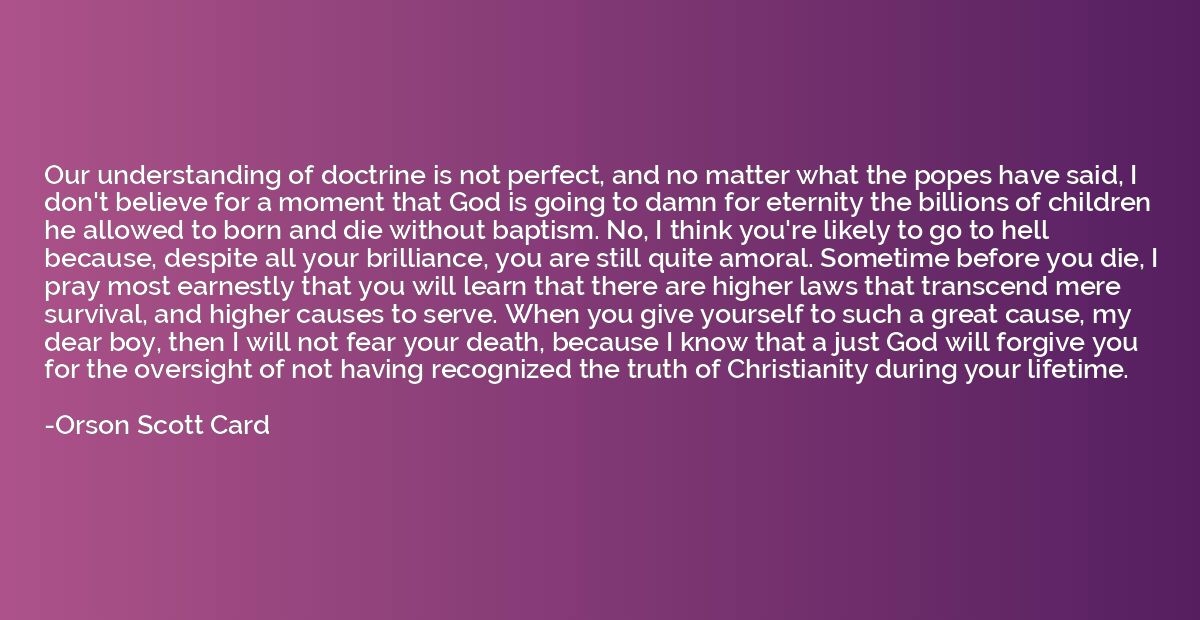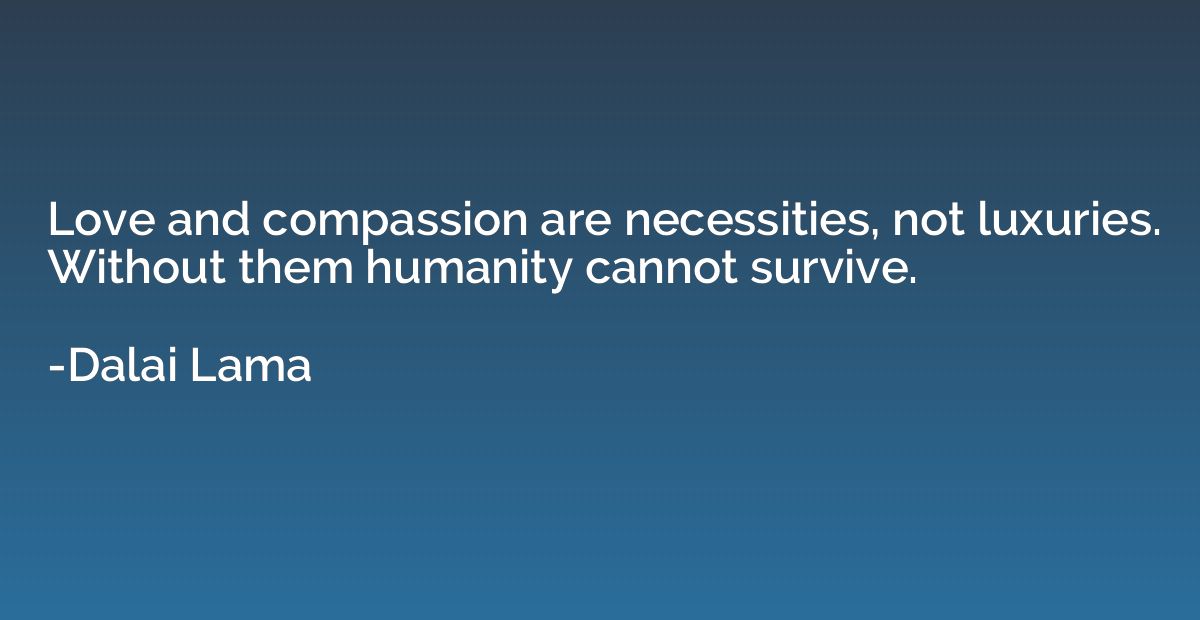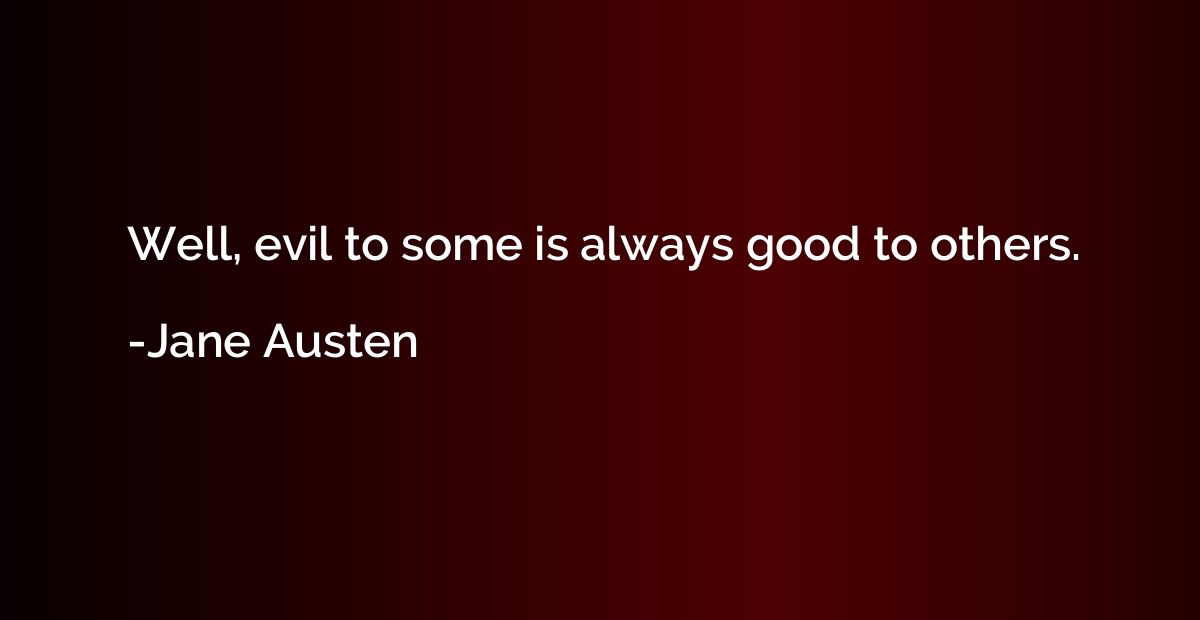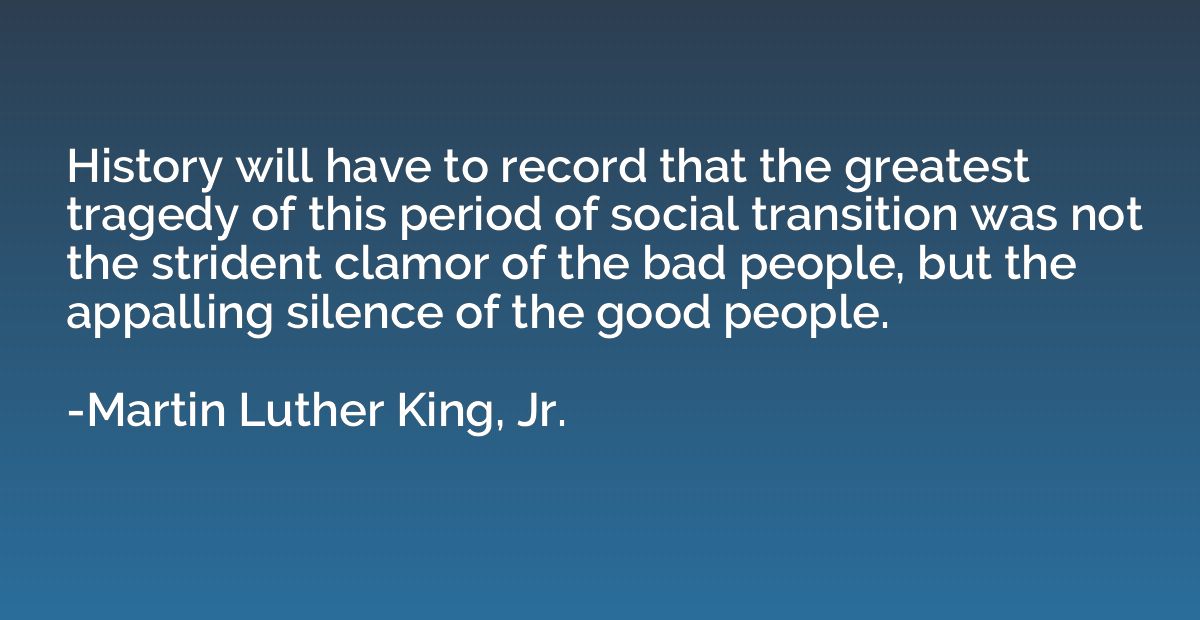Quote by Orson Scott Card
Our understanding of doctrine is not perfect, and no matter what the popes have said, I don't believe for a moment that God is going to damn for eternity the billions of children he allowed to born and die without baptism. No, I think you're likely to go to hell because, despite all your brilliance, you are still quite amoral. Sometime before you die, I pray most earnestly that you will learn that there are higher laws that transcend mere survival, and higher causes to serve. When you give yourself to such a great cause, my dear boy, then I will not fear your death, because I know that a just God will forgive you for the oversight of not having recognized the truth of Christianity during your lifetime.

Summary
This quote reflects an individual's opinion on the doctrine of damnation and their belief in a just and forgiving God. Despite acknowledging the imperfection of our understanding of doctrine, the author shares skepticism regarding the eternal damnation of unbaptized children, questioning the validity of such a concept. The quote also addresses the recipient's behavior, suggesting that their potential damnation may stem from their amorality rather than their lack of religious affiliation. The author expresses hope that the individual will discover higher moral principles before their death, indicating that they believe in the possibility of redemption and forgiveness from a higher power.














